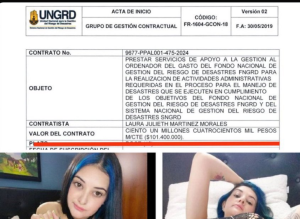
In an unusual and tragic turn of events, Monica Keasler, a resident of Hallsville, Texas, has found herself at the center of a social media storm after being accused of reporting a beloved pet squirrel, Peanut, leading to its euthanization.
This incident has not only sparked widespread outrage but has also raised important questions about the power of social media, the consequences of misinformation, and the treatment of animals under wildlife regulations.
The Incident: What Happened to Peanut the Squirrel?
Peanut the Squirrel was a social media sensation, known for his playful antics and engaging personality. Owned by Mark Longo and his wife Daniela in upstate New York, Peanut had amassed a significant following online. However, on October 30, 2024, tragedy struck when the New York State Department of Environmental Conservation (DEC) seized Peanut along with another pet, a raccoon named Fred. The DEC claimed that they acted on an anonymous tip regarding unsafe living conditions for the animals.
During the seizure, Peanut reportedly bit one of the officials, which led to both animals being euthanized after testing positive for rabies. This decision ignited a firestorm of outrage across social media platforms as animal lovers and advocates expressed their anger towards the DEC’s actions.
The Accusation Against Monica Keasler
In the wake of Peanut’s death, accusations began circulating online that Monica Keasler was the individual who tipped off the DEC about Peanut. The claims gained traction after a verified user on X (formerly Twitter) identified her as the complainant. Allegedly, Keasler had boasted about her role in reporting Peanut on her social media accounts.
However, these claims quickly spiraled out of control. A fake TikTok account emerged shortly after the accusations began circulating, purportedly featuring Keasler confessing to her involvement in reporting the squirrel. This account was created just hours after her name surfaced in connection with the incident and played a significant role in amplifying public outrage against her.
The Fallout: Social Media Backlash
As news spread about Keasler’s alleged involvement, she became an unwitting target for online harassment. Hundreds of thousands of hateful messages flooded her social media accounts as people sought to express their anger over Peanut’s death. In response to this vitriol, Keasler ultimately deleted her accounts in an attempt to escape the relentless scrutiny and backlash.
Mark Longo, Peanut’s owner, later took to social media to clarify that there was no concrete evidence linking Keasler to the complaint.
He urged people to refrain from spreading misinformation and to consider the potential consequences of their actions before targeting individuals without proof. Longo emphasized that while he was pursuing legal action against the DEC for their handling of the situation, it was crucial not to ruin someone else’s life based on unfounded accusations.
The Role of Misinformation
This incident serves as a stark reminder of how misinformation can spread rapidly through social media channels. In today’s digital age, individuals can become victims of mob mentality fueled by half-truths or outright fabrications. The creation of fake accounts and misleading posts can further complicate situations and lead to unwarranted harassment.
The backlash against Keasler illustrates how easily public opinion can be swayed without proper evidence. It highlights a pressing need for individuals to verify information before sharing it online and for platforms to implement measures that reduce the spread of false narratives.
Legal Implications and Animal Rights
The situation surrounding Peanut the Squirrel also raises important questions about animal rights and wildlife regulations. New York law requires that all wild animals be registered with the DEC before being kept as pets. In this case, although Longo claimed he was in the process of registering Peanut as an educational animal, he had not completed this process at the time of seizure.The tragic fate of Peanut has prompted discussions about how laws governing pet ownership are enforced and whether they adequately protect animals while ensuring public safety. Advocates for animal rights are calling for clearer guidelines and more humane treatment in cases involving pet seizures.
Conclusion: A Cautionary Tale
The saga of Monica Keasler and Peanut the Squirrel is a cautionary tale about the dangers of social media outrage fueled by misinformation. It underscores the importance of verifying facts before jumping to conclusions and highlights how quickly someone’s life can be turned upside down by unfounded allegations.
As we navigate an increasingly interconnected world where information spreads rapidly, it is vital to approach such situations with care and responsibility. The tragic loss of Peanut serves as a reminder that our actions—both online and offline—can have profound consequences for individuals and communities alike. Moving forward, let us strive for empathy and understanding while advocating for animal rights and responsible pet ownership practices.







